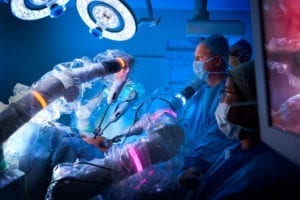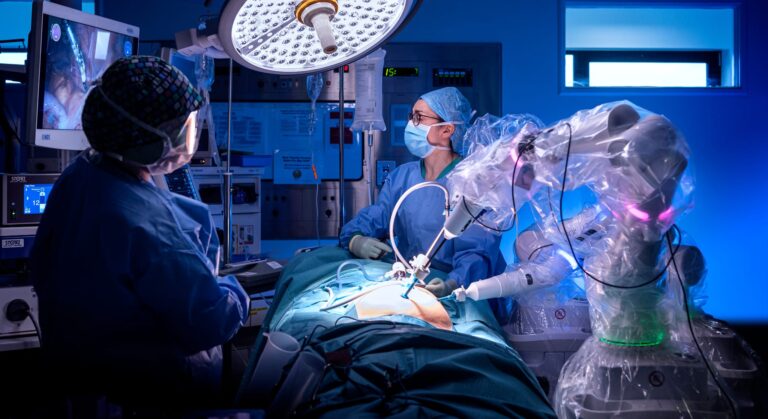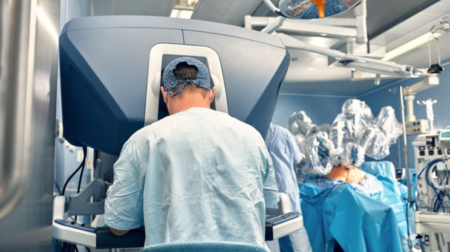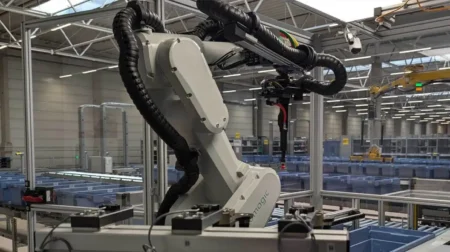A surgical robotic system has been used to successfully perform minimal access surgery (MAS) on patients at two NHS hospitals.
Developed by UK-headquartered CMR Surgical, the solution, called Versius, has so far performed a range of colorectal surgeries, helping to treat patients with bowel disease or bowel cancer.
Three independent arms, which replicate those of a human in size and shape, are coupled with 3D visualisation and instrument controls that allow the surgeon to mimic their own human movement, enabling precise surgeries and less strenuous procedures.
Western General Hospital in Edinburgh and Milton Keynes University Hospital NHS Trust in Buckinghamshire are the first to use Versius in Europe; however, further NHS hospitals are scheduled to introduce the system in 2020.
These include both large teaching hospitals and smaller local centres, which could result in wider use of robotic MAS than seen to date, said CMR Surgical.
According to the company, Versius supports this by being portable, allowing it to be moved to different sites within a hospital, or transported between hospitals within an NHS trust.
Once in theatre, it can take, on average, 15 minutes to set up the system.

Across its first two NHS sites, Versius has the potential to perform up to 700 MAS procedures each year, which otherwise may have been performed by open surgery.
It can be purchased at a fixed cost through a Managed Service Agreement.
CMR Surgical said it believes this means Versius has the potential to be used in NHS hospitals that may historically have found the upfront costs of surgical robotics to be prohibitive.
Lord Prior, NHS England chair, said: “It’s fantastic that the NHS is the first in Europe to use the next generation of surgical robots, and yet another example of how the NHS is teaming up with Britain’s excellent engineering sector to deliver world class care.”
MAS – also referred to as keyhole or laparoscopic surgery – is associated with a number of potential benefits compared to open surgery, including the ability to reduce rates of surgical site infections, pain and scarring.
It is also linked to faster recovery in hospital, with fewer post-operative bed days required for recovery.
A 2018 report by the Office of Health Economics found that a shift to MAS led to a reduction in the average length of stays for gynaecology patients from 5.5 days to 1.5 days in 95% of cases.
As part of the introduction of Versius, a clinical registry has been established to provide a database of patient outcomes information to support patient safety, as well as technical data that can support assisted learning and help optimise Versius’ use in the future.
 Want to learn more about how robotics and automation are transforming healthcare? Robotics and Automation – the UK’s largest dedicated robotics and automation exhibition – takes place on the 3rd and 4th November 2020 at the Ricoh Arena, Coventry. Register your interest now at www.roboticsandautomation.co.uk
Want to learn more about how robotics and automation are transforming healthcare? Robotics and Automation – the UK’s largest dedicated robotics and automation exhibition – takes place on the 3rd and 4th November 2020 at the Ricoh Arena, Coventry. Register your interest now at www.roboticsandautomation.co.uk








